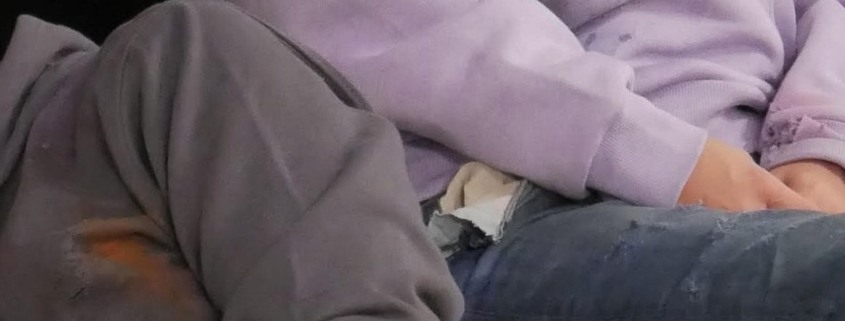ANIMA OVERDRIIIIIVE
Stefan Panhans, Andrea Winkler
Curator: Cristian Nae
STATEMENT
According to the German philosopher Byung-Chul Han, “21st century society is no longer a disciplinary society, but rather an achievement society [Leistungsgesellschaft]. Its inhabitants are also no longer ‘obedience subjects’ but ‘achievement subjects’”. Signaling the shift from subjectivisation through the internalization of social rules and prohibitions identified by Michel Foucault in industrial modernity to the cognitive-somatic-affective productivity specific to post-industrial social organization, in which “the impulse to maximize production inhabits the social unconscious”, Byung-Chul Han identifies the burnout syndrome as the main effect of capitalist psychopolitics.
In a possible dialogue with these ideas, the exhibition Anima Overdriiiiive, conceived by German artists Stefan Panhans and Andrea Winkler, explores the intersection between the imperative of achievement and productive efficiency specific to a society of emotional, cognitive and physical exhaustion, on the one hand, and the micro-political tactics through which art can generate counter-discourses, on the other.
The video works produced by Stefan Panhans and Andrea Winkler aim to subvert mainstream musical forms and the codes of visualization specific to dominant forms of entertainment. In the fragmented visual discourses and narratives contained in these works, anxiety, compulsive gestures, cognitive dissonance as well as the burnout syndrome generated by the accelerationism embedded in the capitalist way of life are understood not only as specific symptoms of contemporary post-industrial subjectivity, but also as means to produce experiential knowledge. They can generate micro-processes of anarchic resistance through hijacking, critical imitation and short-circuiting.
Characterized by the repetition of automated and artificial processes of subjectivation, the characters constructed by the two artists refuse to be determined solely by the imperative of making the activities they are meant to perform more efficient. Often, interactions are broken down into actions devoid of immediate utility, which disrupt the expectations of rationality of the social interactions staged, like NPCs in the video game universe waiting for tasks that they perform without understanding and without affectively attaching to them.
The video work Defender, characterized by the artists as a “post-industrial anti-musical”, constructs a narrative that accumulates behavioral stereotypes and incompletely internalized discursive fragments extracted from the motivational and self-improvement rhetoric of corporate culture, advertising, and the messianic rhetoric of pseudo-religiosity – false saving resources. Set in an underground car park, the trialogue initiated between female characters involved in a situation they do not fully understand accompanies a choreography in which the excess of energy consumed, for instance, through aerobic exercise, exposes (post)pandemic anxiety, translated into hyper-individualism, the imperative of self-actualization and excessive (self-)consumption. The ultimate consequence of these somatic and affective technologies of subjectivisation is the depletion of planetary resources, symbolized by the imposing presence of the SUV as the main scenographic element.
The other video work, suggestively titled Anima Overdrive, evokes the underground imaginary of rap as a commercial non-mainstream music genre associated with minority social groups, including queer and feminist aesthetics in a broad sense. This time, the saccharine and rebellious discourse of the female character, dressed in American football sports gear exemplifying the imagery of male heroism, exposes, according to the artists, „the sound of rebellious exhaustion in a world increasingly dominated by algorithms and AI in the service of a turbo-accelerated platform capitalism, where everything, without exception, threatens to become a commodity, and we all breathless suppliers.”

